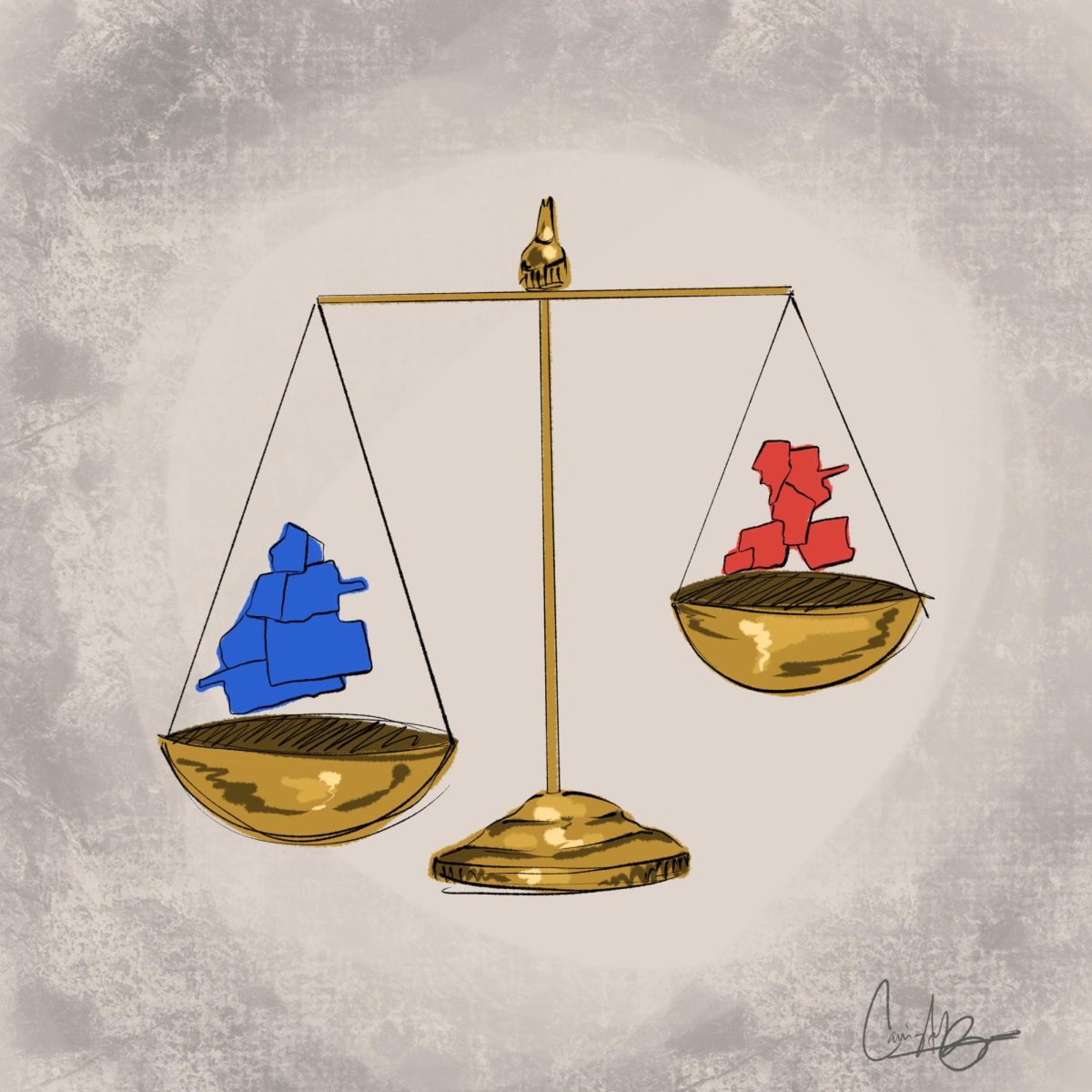I was born and raised in Illinois and in the Chicago suburbs. While I certainly experienced my fair share of political diversity, I never had any doubts that our federal senators, many of our representatives and our governors were going to be Democrats. I never second-guessed my ability to receive access to reproductive care, my queer friends’ ability to feel safe in their environment or that a variety of social programs and welfare assistance would be provided to my neighbors in need. Sure, topics were debated, bigotry was ever-present and many of such issues were tested on occasion, but despite being a politically-minded teenager, I was never truly stressed. In conversations with friends and family about these topics, we would always end it with a “We’re fine, we live in Illinois.”
Leaving the Democratic stronghold that is the state of Illinois and the city of Chicago to go to school in Pennsylvania, my entire perspective on voting and the fortification of such issues entirely shifted. While I have written and spoken about the rural bubble that many conservative voters find themselves in, I too was living in a bubble. I had the privilege to go about my life, not ever truly living in fear that my rights and those of my peers could be stripped away at any moment. Living in Pennsylvania, this privileged bubble I had been floating in quickly popped. I realized right away — not just as a political science major, but also as a human being who cares deeply about the rights and livelihood of those around me, I have a duty to vote smartly and strategically. Every single person in the state of Pennsylvania, every individual who votes in and resides in swing states has this same duty. All votes carry weight, but ours are the deciding factors in elections.
My message is clear to all new and returning students coming to Pitt to start the fall semester — we all have this same duty not only to vote, but to vote strategically. It is not only our civic duty, but it is our moral duty as well.
Due to the way our electoral system is set up, what is known as Duverger’s Law reigns true. We will always be voting for two parties unless the whole system is torn apart. A third party actually having a chance at the highest level without a complete restructure of our electoral law or without highly popular and pervasive grassroots efforts at the lower branches of government is just not possible. There has been a lot of talk about third parties this election cycle, especially because many people highly disliked both official Republican nominee Donald Trump and previous presumptive Democratic nominee Joe Biden. Such talks of third parties in the Presidential Election have shifted since Biden stepped down and Vice President Harris became the presumed nominee. But there are still many weeks until the election, and many weeks for tides to shift and campaigns to go haywire.
Voting third party in a presidential election isn’t a big deal in a Democratic stronghold like Illinois or a Republican stronghold like Indiana. However, voting third party in the Presidential election in a swing state such as our own here in PA is irresponsible. If we truly want third parties as an option, it needs to start much lower in the federal system. This election, with multiple SCOTUS positions opening up, abortion directly or indirectly on every single ballot, mass deportation a possibility and a genocide happening across the Atlantic, is not a time to waste your vote on a lopsided, statistically impossible dream.
There will never be the perfect candidate. There is never going to be a candidate you agree with 100% of the time on 100% of policy issues. However, working under certain presidential candidates’ administrations will be much easier, and they would be more open to actually hearing your ideas out. If you are an advocate for pro-choice policy, would you rather work under the party that wants a complete and total ban, or one that wants to codify abortion access in federal law?
In swing states, voting is strategic, and as swing state voters, we cannot throw our vote away to an idealized candidate and revolution that doesn’t even exist. I am an advocate for reform and an advocate for left-wing policies, but I care more about making sure not only my own rights are secure, but the rights of my friends and the strangers who comprise my neighbors and community. While I do not agree with Kamala Harris on many, if not most of her policy issues, I will vote for her because that is who I think will best support and lead us to the future I want. Under Donald Trump, I would fear for the rights of every single person in this nation. I will not risk a future with Trump to claim some disillusioned high ground simply because Harris is not my perfect candidate. Whether you agree with my politics or not, all votes on either side of the coin must be strategic. While the present is important, so is our future. Between our two current likely candidates, I like one future much better than the other.
As we enter into the fall semester, make sure you are registered to vote in Pennsylvania. If you are from the other side of the state, make sure you request your mail-in-ballot. If you are moving here from out of state like I did, make sure all your information is updated and you are able to vote at your local polling place come November. Whether we like the electoral system or not, our votes here in Pennsylvania are a lot more powerful than in most other states. In Pennsylvania, it is our civic and moral responsibility to vote. And as incoming students to one of the most important swing states this election, we have the ability to actually impact the country and help point it in the direction we want to see it move.
Livia LaMarca is the assistant editor of the opinions desk who misses using the Oxford comma. She mostly writes about American political discourse, US pop culture and social movements. Write to her at lll60@pitt.edu to share your own opinions!



